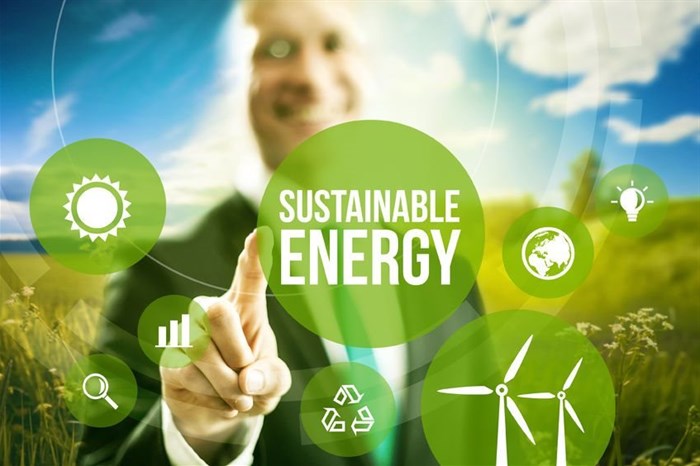Across the continent, countries in Africa are gearing up for the energy transition by implementing policy and legislative frameworks that take into account the energy crisis and the need for a renewable, decarbonised, decentralised energy supply that addresses climate change and the commitments made under the Paris Agreement.
Ahead of the United Nations Climate Change Conference, COP27, in Egypt in November this year, lawyers in Egypt, Ghana, Kenya, Morocco, Namibia, Nigeria, South Africa, Tanzania and Uganda have outlined the efforts taken by the governments in their countries to address this urgent need to harness renewable power. Such efforts are expected to provide exciting opportunities for investors in the African energy sector.
In part one of this overview, we hear from lawyers in Egypt, Ghana, Kenya, Morocco and Namibia.
Egypt
Lamyaa Gadelhak, Baker McKenzie Cairo Partner & Co-Head of Banking and Projects:
In Egypt, article 20 of the Investment Law No. 72 of 2017 (Investment Law) provides that companies that are established to develop a strategic or national project that contributes to achieving development, or projects in partnership with the private sector and the State, the public sector or the public business sector, in the area of public utilities, infrastructure, new or renewable energy, roads, transportation or ports, may, by a cabinet decree, be granted a "single license" for the establishment, operation and management of the project, which will include a construction permit and an allocation of real estate property required for the project (License).
Such a License will be effective without the need for any further procedures and may include other additional incentives for the project provided in the Investment Law. The aforementioned was further developed through Cabinet Decree No. 56 of 2022, which specified a series of requirements to be met for a project to be considered a strategic and/or national project. In addition to meeting a set of conditions, said projects must be a development in one of the fields specified in the cabinet decree, which include, but are not limited to, green hydrogen projects, green corridor projects, renewable energy projects aimed at supplying desalination projects and green hydrogen production projects with energy, and carbon capture, utilisation and storage (CCUS) projects. The conditions, set out in the cabinet decree, will be subject to a yearly review in light of any changes to the State's economic development plan.
Gina Ziervogel 24 Oct 2022 Among the other incentives provided under the Investment Law, and which can be included in the License, Article 11 provides that companies set up before 28 October 2023 to operate in certain industry groups, could obtain a deduction from their taxable income. This incentive is limited to seven years from the date of commencement of the project and is not perpetual. Furthermore, the Investment Law provides that additional incentives around, for example, utilities connection costs, land allocation costs and technical training may be made available to a project by a cabinet decision.
The Government of Egypt has now also expressly recognised the production, storage and export of green hydrogen and green ammonia among the areas falling within the State's economic development strategy. It has passed a decree that would allow green hydrogen and green ammonia projects to benefit from a wide range of State support under the country's existing Investment Law, including tax incentives. This is a key development for Egypt's hydrogen economy and we expect that it will stimulate private investment and the development of new green hydrogen and ammonia projects in the country.
Ghana
Sefakor Kuenyehia, Solicitor & Barrister, Kimathi & Partners in Ghana:
A recent legal development in Ghana was the amendment of the Renewable Energy Act, 2011 (Act 832) by the Renewable Energy (Amendment) Act, 2020 (Act 1045) (amended Act). The amended Act was passed on 29 December 2020 and establishes a procurement scheme to deliver a competitive market rate for electricity generated from a renewable source.
The Government of Ghana, through the Energy Commission, has also produced the Renewable Energy Master Plan 2019, and the Sustainable Use of Natural Resources and Energy Financing (Sunref) 2021. Under the Renewable Energy Master Plan, the government proposes incentives in the form of substantial tax reductions. It also proposes exemptions of import duties and VAT on materials, components, equipment, and machinery (that cannot be obtained locally) for manufacturing or assembling renewable energy resources. Also, under the Sunref Programme, the government, in collaboration with other agencies, is offering businesses, organisations and households an opportunity to access financing for sustainable energy projects, and technical assistance in structuring green investment.
Vladimir Milovanovic 21 Oct 2022 Kenya
Amyn Mussa, Partner and the Head of Projects & Infrastructure at Anjarwalla & Khanna (A&K) in Kenya:
The Draft Kenya Energy Sector White Paper 2022 (Draft Energy White Paper) highlights that renewable energy sources currently account for over 75% of Kenya’s installed power generation capacity, with geothermal (863 MW), hydro (838 MW), wind (436 MW), and solar (173 MW) being the leading contributors. The sectoral reforms undertaken in the energy sector in recent years have resulted in Kenya having one of the cleanest electricity grids in the world. These reforms, among others, include the enactment of several laws and policies such as the Energy Act 2019, the Nuclear Regulatory Act 2019, Kenya FiT Policy 2021, the Least Cost Power Development Plan 2017-2037 (the LCPDP) and the 2021 Renewable Energy Auction Policy.
Although Kenya has adopted new and emerging technologies such as smart grid solutions that continue to make a renewable future achievable, some technologies such as sustainable biomass, battery technologies and green hydrogen have not yet been incorporated into the projected energy mix under national plans, such as the LCPDP. Should these technologies be fully adopted and developed, they will present additional opportunities for the country to meet the 100GW target of installed capacity by 2040 through renewable energy sources set out in the Draft Energy White Paper.
Morocco
Keltoum Boudribila, Partner, and Saad Khaldi, Associate, Nasrollah & Associés Baker McKenzie in Morocco:
In May 2022, the House of Representatives of the Moroccan Parliament unanimously adopted Bill 40-19 amending Law 13-09 on renewable energies and Law 48-15 on the regulation of the electricity sector and the creation of the national electricity regulatory authority. The Bill will aim to simplify the authorisation procedures, to strengthen the attractiveness of the renewable energy sector for national and international investors, as well as to safeguard the economic and social balance of public actors in the electricity sector.
The new legal framework will allow industries to produce their own renewable energy for their operating needs and supply it to other consumers. Morocco has been liberalising the renewable energy sector for several years, and is continuing on this path with these legislative amendments.
Namibia
Axel Stritter, Partner at Engling, Stritter and Partners in Namibia:
The Namibian government has stated that in order to achieve energy security and position itself as a regional African leader in renewable energy, it will focus on securing large-scale, low-cost renewable energy and green hydrogen and ammonia projects that are sustainable and able to maximise fiscal revenue and local development. To facilitate this energy transition, the Ministry of Mines and Energy introduced National Integrated Resource Plans (NIRP), being medium to long-term plans that guide state and private investors on least-cost investments in the energy sector, planning scenarios, and greenhouse gas consequences of energy projects. Further, the Harambeee Prosperity Plan II aims to implement targeted policy programmes to enhance post-pandemic economic recovery in Namibia. Improving energy security in Namibia is part of this plan.
Namibia currently produces about 40% of its own energy requirements, with around 60% imported from neighbouring countries, including South Africa. The planned renewable energy projects in the country aim to fill this gap and ensure the production of a reliable energy supply in the country. Renewable energy projects in the pipeline include those focused on biomass, solar, wind and battery energy storage.
Existing solar and wind resources puts Namibia at an advantage in the production of green hydrogen and ammonia, which could assist in making the country the first in Africa to achieve carbon neutrality.
The country's green hydrogen and ammonia plans are supported by the government's national Green Hydrogen Initiative, which aims to secure high impact environmental, educational, economic and social investments in the country. The Tsau Khaeb National Park Southern Corridor Development Initiative, with Hyphen Hydrogen Energy, was announced in June 2022. This is the country's first large-scale green hydrogen project, with the first phase of production planned for completion by 2026. Total investment in this project is $10bn.
In part two of this series, we hear from lawyers in Nigeria, South Africa, Tanzania and Uganda.





































